
- Index
- Age
- Item Height
- Maker
- Artist Signed (3)
- China (18)
- Chinese (7)
- Evelyn Ackerman (3)
- France (313)
- French (175)
- French Hand Carved (3)
- Hand Carved (7)
- Hand Made (21)
- Hand Made In France (8)
- Handemade (3)
- Handmade (96)
- India (4)
- Indian Art (3)
- Jungwirth (4)
- Made In France (25)
- Mogul Interior (3)
- Mogulinterior (4)
- Tribal (9)
- Unknown (111)
- ... (3968)
- Material
- Beech (23)
- Carved Wood (9)
- Chestnut (8)
- Hand Carved Wood (150)
- Mango Wood (13)
- Oak (105)
- Oak Wood (25)
- Oak, Wood (11)
- Solid Oak (16)
- Solid Oak Wood (17)
- Solid Walnut (16)
- Solid Walnut Wood (34)
- Solid Wood (13)
- Teak Wood (36)
- Walnut (108)
- Wood (1139)
- Wood Solid Walnut (14)
- Wood, Oak (7)
- Wood, Paint (8)
- Wooden (64)
- ... (2972)
- Style
- 1950s (9)
- Antique (48)
- Antique Style (34)
- Art Deco (56)
- Art Nouveau (21)
- Asian (106)
- Asian / Oriental (140)
- Balinese (34)
- Black Forest (61)
- Folk Art (34)
- French (159)
- French Hunting (10)
- French Victorian (32)
- Gothic (95)
- Gothic Revival (23)
- Renaissance (39)
- Traditional (36)
- Victorian (50)
- Vintage (19)
- Vintage / Retro (13)
- ... (3769)
- Type
- Carved Panel (15)
- Carved Wood Panel (16)
- Carving (181)
- Carvings (17)
- Door (25)
- Doors (19)
- Figurine (26)
- Light Sculpture (31)
- Panel (148)
- Panels (16)
- Plaque (17)
- Plaques / Signs (22)
- Room Divider (18)
- Sculpture (144)
- Statue (39)
- Wall Art (28)
- Wall Hanging (17)
- Wall Panel (49)
- Wall Sculpture (17)
- Wood Carving (111)
- ... (3832)
Scarce-unique-middle East-circa 1600-1750 Ad Carved Wood Wooden Panel-4208gr
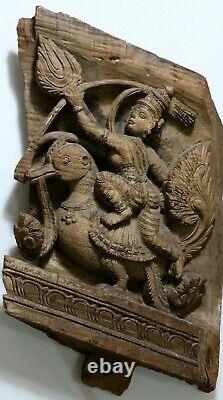
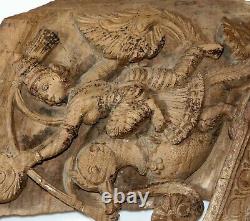
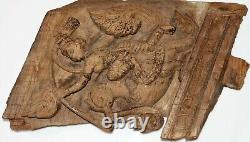

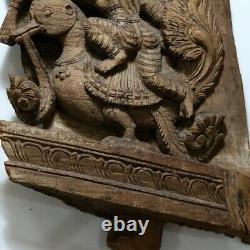
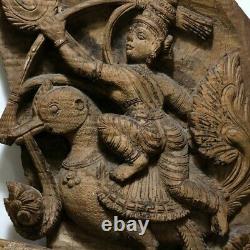
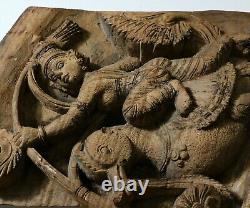


Read All Our Details For Payments And Combine Invoices. Condition : As shown on photos. No more than 14 days please.
Because unpaid item case will open. All the parcels are insured on 50 euros. Courier services available to any country and any courier service. Other couriers from EMS needed Ph.Request if you need courier service. PARCELS WITH TRUCKING NUMBERS FOR COUNTRIES IN LATIN AMERICA ALWAYS WE HAVE DELAYS. We accept pay-pal payments, bank transfers and Other Options. ACCEPTED FOR ANY REASON BUT DO NOT DELAY MORE THAN 45 DAYS.
Before to give any feedback or open case or request. Electrum : Low Quality Gold, Mix Gold with silver Copper and sometimes alloy. Billon : Low Quality Silver, Mix With Bronze Or copper and alloy. Roman Period : 27 BC-476 AD. Ancient history as a term refers to the aggregate of past events.
From the beginning of writing and recorded. And extending as far as the post-classical history. The phrase may be used either to refer to the period of time or the academic discipline.
The span of recorded history. Is roughly 5,000 years, beginning with Sumerian. The oldest discovered form of coherent writing from the protoliterate.Period around the 30th century BC. Ancient history covers all continents inhabited by humans in the 3000 BC - AD 500 period. The broad term "ancient history" is not to be confused with Classical Antiquity.
Is often used to refer to Western History. From the beginning of recorded Greek history in 776 BC First Olympiad. This roughly coincides with the traditional date of the Founding of Rome. In 753 BC, the beginning of the history of ancient Rome. And the beginning of the Archaic period.
The academic term "history" is not to be confused with colloquial references to times past. History is fundamentally the study of the past through documents, and can be either scientific archaeology. Although the ending date of ancient history is disputed, some Western. Scholars use the fall of the Western Roman Empire. In 476 AD (the most used).
The closure of the Platonic Academy. The death of the emperor Justinian I. Or the rise of Charlemagne. As the end of ancient and Classical European history. Outside of Europe the 450-500 time frame for the end of ancient times has had difficulty as a transition date from Ancient to Post-Classical times. During the time period of ancient history (starting roughly from 3000 BC), the world population. Was already exponentially increasing due to the Neolithic Revolution. Which was in full progress. According to HYDE estimates from the Netherlands world population increased exponentially in this period. In 10,000 BC in Prehistory. The world population had stood at 2 million, rising to 45 million by 3,000 BC. By the rise of the Iron Age. In 1,000 BC, the population had risen to 72 million. By the end of the period in 500 AD, the world population is thought to have stood at 209 million. In 3,500 years, the world population increased by 100 times. If you see the same item in our auctions. Or we have similar item and in rare situation the listing is wrong. All of our items are as pictured and as described. As all of our items from all of our knowledge's are genuine and as described. Size and weight plus zoom on every picture and all the sides of the item. We cannot provide any certificates as we are not authorize and as we don't have the license to do it. We will provide certificates for any items where we have certificates from other experts. All of our items could Be Ancient Style, Ancient, Medieval, Vintage or and any other culture and age, descriptions Based from our dealers and we believe we sell what we describe. Could be also restore, clean with new patina, conserved, partial restore or even expert refresh the quality of the item. If ancient style we give the title as was in ancient period and which period they made it. Our Company is based in Cyprus and registered in Cyprus.We post all of our items from Cyprus. So no one of our items coming up from Cyprus or Cypriot collections. We never deal with Cypriots.
If you need to know anything about law. Above you can read the European law. Which say about ancient items.
Archaeology is the excavation and study of artifacts in an effort to interpret and reconstruct past human behavior. Archaeologists excavate the ruins of ancient cities looking for clues as to how the people of the time period lived.
Some important discoveries by archaeologists studying ancient history include. Giant tombs built by the ancient Egyptians. Beginning about 2600 BC as the final resting places of their royalty.
The study of the ancient cities of Harappa. An ancient Roman city preserved by the eruption of Mount Vesuvius.Its state of preservation is so great that it is a valuable window into Roman culture and provided insight into the cultures of the Etruscans. The mausoleum of the First Qin. By Minos Kalokairinos and Sir Arthur Evans.
Most of what is known of the ancient world comes from the accounts of antiquity's own historians. Although it is important to take into account the bias of each ancient author, their accounts are the basis for our understanding of the ancient past. Some of the more notable ancient writers include Herodotus. A fundamental difficulty of studying ancient history is that recorded histories.
Cannot document the entirety of human events, and only a fraction of those documents have survived into the present day. Furthermore, the reliability of the information obtained from these surviving records must be considered.
Few people were capable of writing histories, as literacy was not widespread in almost any culture until long after the end of ancient history. The earliest known systematic historical thought emerged in ancient Greece. Beginning with Herodotus of Halicarnassus. Largely eliminated divine causality in his account of the war between Athens and Sparta.
Establishing a rationalistic element which set a precedent for subsequent Western historical writings. He was also the first to distinguish between cause and immediate origins of an event. Was an ancient culture with a relatively high literacy rate. But many works by its most widely read historians are lost.A Roman historian who lived in the 1st century BC, wrote a history of Rome called Ab Urbe Condita. (From the Founding of the City) in 144 volumes; only 35 volumes still exist, although short summaries of most of the rest do exist. Indeed, no more than a minority of the work of any major Roman historian has survived.

